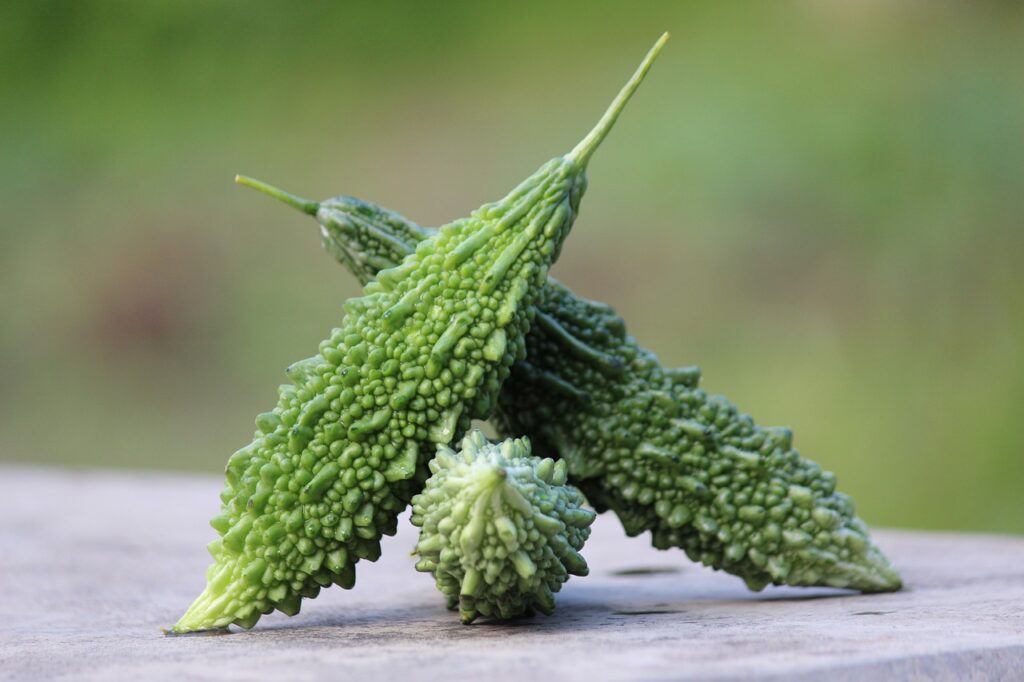Rare Herb
Bitter Melon | Bitter Gourd (Momordica Charantia)

Introduction: Bitter gourd, scientifically known as Momordica charantia, is a unique vegetable with a distinct bitter taste that has been a staple in traditional medicine and culinary practices for centuries. In this article, we will delve into the rich history, versatile uses, incredible health benefits, and potential medical treatments associated with bitter gourd.
History of Bitter Gourd: Bitter gourd has a long and diverse history, with its origins traced back to the Indian subcontinent. It is believed to have been cultivated for over 2,000 years, spreading to China, Africa, and the Caribbean over time. The vegetable holds a significant place in Ayurveda, traditional Chinese medicine, and various other herbal healing traditions.
Uses of Bitter Gourd:
- Culinary Delight: Bitter gourd is a versatile ingredient in many cuisines, known for its ability to add a unique flavor to dishes. In Asian cuisine, it is often used in stir-fries, soups, and curries. The bitterness can be balanced with spices, and the vegetable’s crunchy texture makes it a popular choice in various recipes.
- Medicinal Purposes: Bitter gourd is renowned for its medicinal properties. It is rich in antioxidants, vitamins, and minerals. In traditional medicine, it has been used to treat various ailments, including diabetes, skin disorders, and respiratory conditions. Modern research is increasingly exploring its potential in managing chronic diseases.
Benefits of Bitter Gourd:
- Blood Sugar Regulation: Bitter gourd is celebrated for its ability to regulate blood sugar levels. It contains compounds that mimic the action of insulin, making it beneficial for individuals with diabetes. Including bitter gourd in the diet may contribute to better glucose control.
- Weight Management: With its low calorie and high fiber content, bitter gourd is an excellent addition to a weight management plan. The fiber promotes a feeling of fullness, reducing overall calorie intake.
- Skin Health: The antioxidants in bitter gourd contribute to healthier skin by fighting free radicals. Additionally, it has been used traditionally to treat skin conditions like acne and eczema.
- Immune System Boost: Bitter gourd is a rich source of vitamin C, an essential nutrient for a robust immune system. Regular consumption may help the body fend off infections and illnesses.
Potential Medical Treatments:
- Diabetes Management: Bitter gourd has gained attention for its potential role in managing diabetes. Research suggests that compounds in bitter gourd may help improve insulin sensitivity and reduce blood sugar levels.
- Anticancer Properties: Preliminary studies indicate that bitter gourd extracts may possess anti-cancer properties, with potential benefits in preventing and treating certain types of cancer. However, more research is needed to establish its efficacy.
Conclusion: Bitter gourd’s rich history, culinary uses, and health benefits make it a remarkable vegetable with a lot to offer. Whether incorporated into delicious recipes or explored for its potential medicinal applications, bitter gourd stands as a testament to the power of nature in promoting overall well-being. As always, it’s advisable to consult with a healthcare professional before making significant dietary changes or using bitter gourd for therapeutic purposes.

